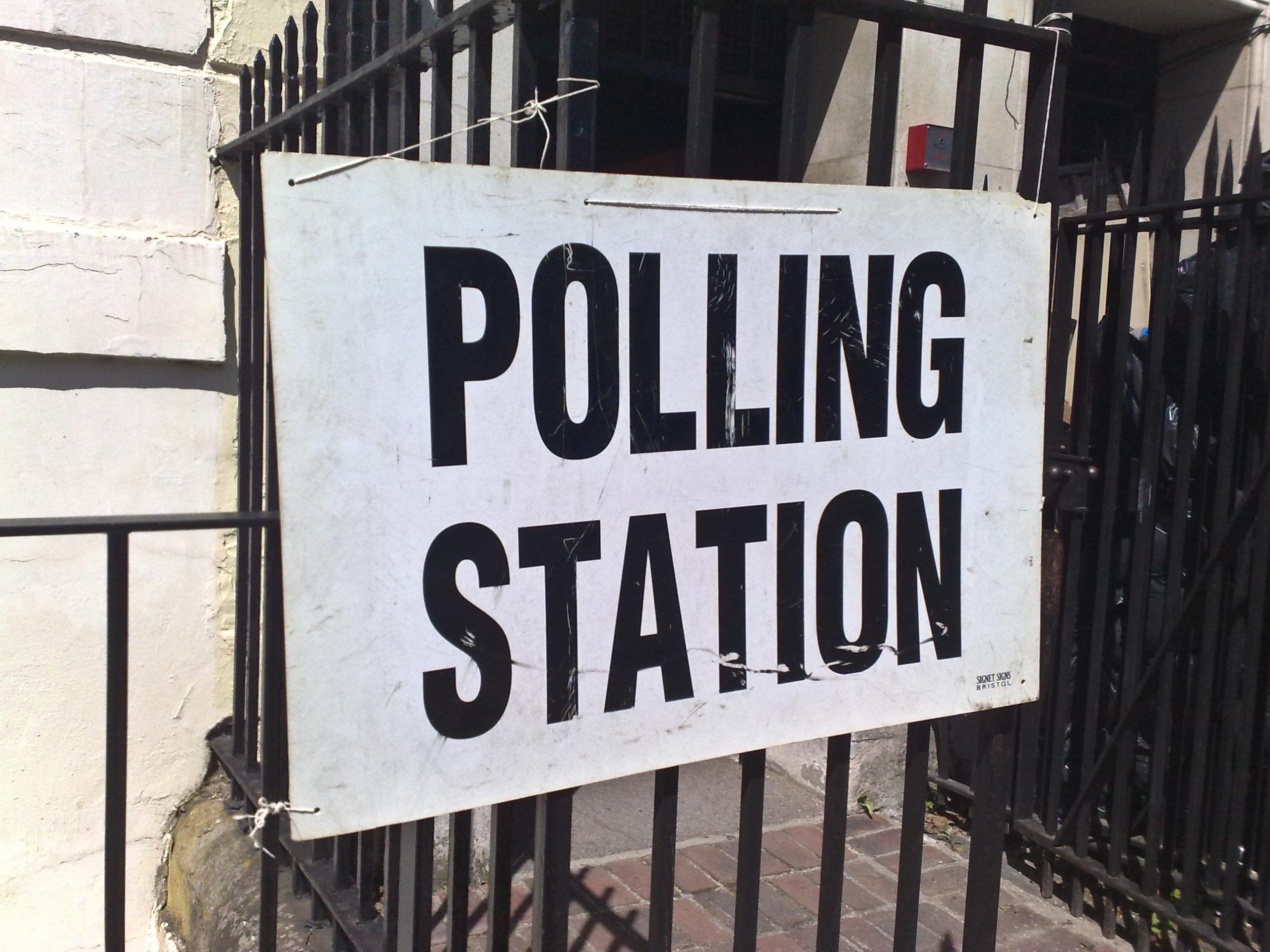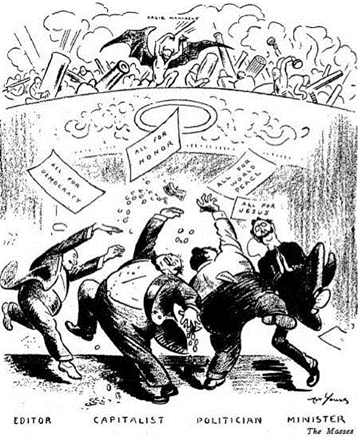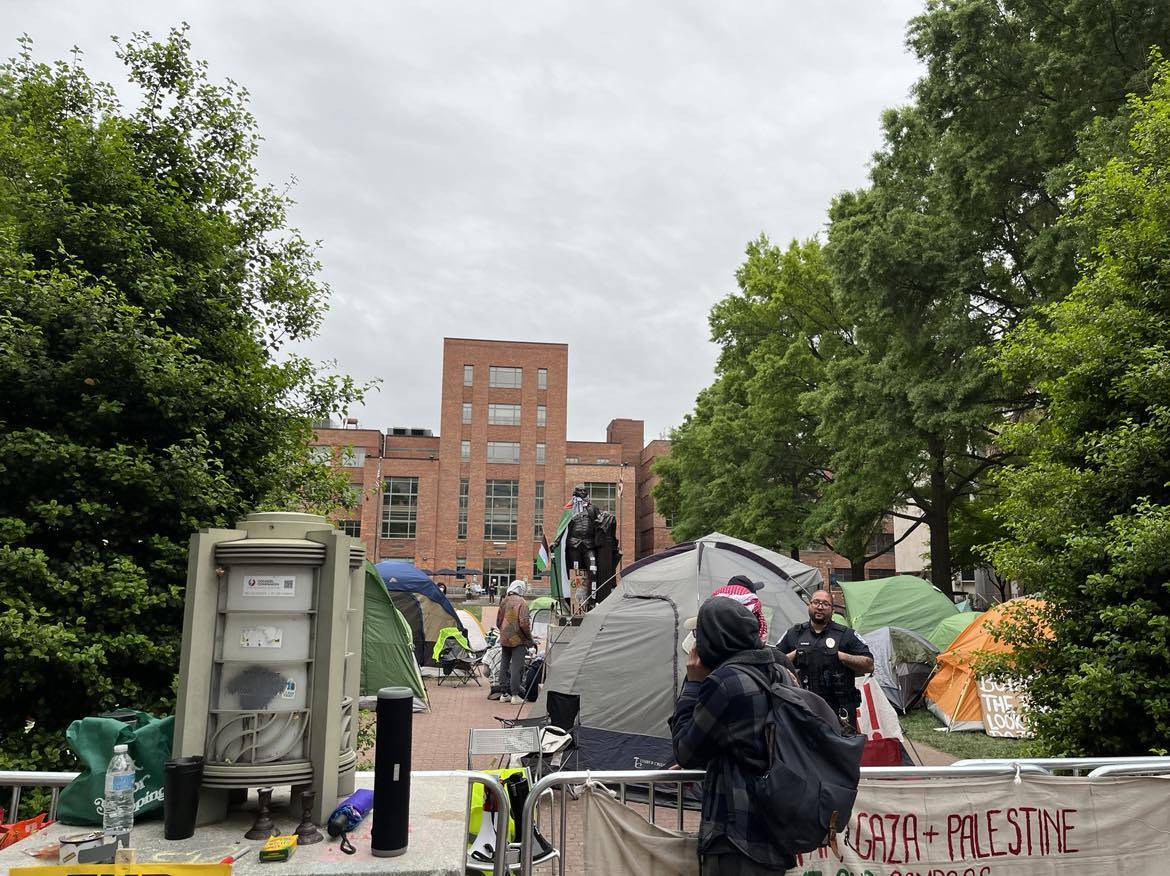Political struggle, anarchism, and education have a long, complex history. To help shed some critical light, and cut through layers of academic debris, I sought two political prisoners’, and long-term peer educators’, views on education and struggle.
How important is education in radical or revolutionary struggle?
Jalil: You did not define what you mean by education (?), therefore, the open ended question can only be answered that any form of education that serves to raise consciousness [sic] toward a revolutionary determination is important.
In your view, as a revolutionary, what are key aspects of radical or revolutionary education?
Jalil: The study of revolutions throughout the world, the writings of other revolutionaries is extremely important to hone ones analysis and understanding of the forces opposing liberation. Secondly, study of the system one is opposing is necessary to better field a strategy to combat systems of oppression, repression.
David: [answering 1 & 2 together] Education is absolutely essential! We are barraged with the dominant ideology and a totally one-sided presentation of the “facts.” To take just one of the infinite e.g.s, the crown prince of Saudi Arabia was just welcomed as a friend of democracy while the media and politicians are decrying the “dictator” in Venezuela. And it’s not just that all the political terms and facts are wrong, but mass culture is designed to divert people and keep them misdirected or passive. Education is absolutely essential to help people see the world as it really is and to nurture critical thinking.
Given your experience as a peer educator in prison, what teaching or education methods did you find effective?
Jalil: The effective way of teaching in prison is providing study materials, group discussions on the materials and writing assignments.
David: It usually works best with something that matters to the students. We got a great response in using education to respond to the AIDS crisis. Our method was in some way Freirean, in that we opened up ways for people to be active in facing the needs and crises in their lives. But we also needed to be very rigorous about mastering a body of material.
Have you had many experiences communicating or collaborating with academics?
Jalil: My experience communicating with or collaborating with academics has been limited. Generally speaking, academic’s [sic] are not pragmatic, certainly not revolutionary, and express little desire for engaging in challenging the system.
If so, what are some of the shortfalls you see with academics interested in or working on topics related to radical social change?
Jalil: See above!
David: [answering 4 & 5 together] My limited interaction with academics have pretty much been with some gems who are activist orient—Becky Thompson, Joys James, Victor Wallis, Ward Churchill, Dan Berger and a few others. There are many more I haven’t worked with directly who do great work, like Angela Davis and Barbara Ransby. So that experience has been rewarding. Naturally there is a problem when people get too severed from actual struggles of the oppressed. An example might be the ways that “identity politics” got severed from its original sense of the many voices of the oppressed against the systems as a whole to, for some, more of a cultural safe space. I’m not sure. But I think the key is for academics to work closely with oppressed people and their movements.
What do you think academics, scholars, and researchers need to know when they are thinking about working with political prisoners?
Jalil: Working with political prisoners demand [sic] preparation to do work, be dedicated and willing to sacrifice to manifest specific tasks consistent with an agreed goal or objective to achieve.
David: That we represent a continuity of struggles from the 1960s to today. That we don’t need or want sympathy for our situation but rather serious and critical engagement with the ideas we put forward.
What research questions do you, as a political prisoner, think has been overlooked by academics or scholars?
Jalil: Academics has sorely failed to critique the capitalist system with an objective to forge a revolutionary determination. They have failed to give a class analysis of capitalism that exposes the reality that a capitalist system requires divisions, competition and a compliant work force to be exploited, using racism as a tool of racial division and exploitation. This is hypocritical on the part of scholars who find themselves feeding out of the trough of capitalist exploitation and oppression.
David: First of all, radical academics have been doing some invaluable work in recent years. There’s been a real flowering of analysis of racial capitalism—Robin D. G. Kelly, Gerald Horne and several others. There’s also been valuable analysis of patriarchy and capitalism, such as Maria Mies and Silvia Federici, and how it all fits together, such as Nancy Fraser. There’s been some excellent work on analyzing the mad dash toward environmental catastrophe. I’m only mentioning a tiny fraction of academics doing very worthwhile, helpful work.
To me the biggest gap now is internationalism. It’s so lamentable that we don’t have a strong anti-wars mvt. [underlining in original], at a time when imperial interventions are turning whole countries—Afghanistan, Iraq, Libya, Somalia, Sudan, Syria, Yemen, and more—into humanitarian disasters. I’d love to see academics do a lot more to expose the lies on why the U.S. intervenes and the horrors of what it does, maybe at least something like the teach-ins we did early in the Vietnam War. Also, I’m sure there’s some, but I’d love to see more, analysis of how white supremacy at home and imperialism abroad are all one system, one system also along with patriarchy and class rule.
What is the best way that you think academics, scholars, and researchers can use their platform to support political prisoners and/or radical social change?
Jalil: Scholars and academics need to demand the U.S. government recognize the existence of U.S. political prisoners! They need to especially demand the amnesty and release of COINTELPRO convicted political prisoners, subject to the Senate Church report establishing the unconstitutional practices of the FBI’s COINTELPRO practices. If they were to collectively do this, it would be a paradigm shift of national political awaking [sic] challenging the governments [sic] practice of political suppression and repression.
David: Support for PPs should be part of a broader program to promote radical social change. The reality of PPs gives lie to the U.S. pretensions about human rights and at the same time, as mentioned above, underscores the continuity of the ongoing struggles for social justice. Encouraging students to write or visit PPs is one way to promote both goals. Also, support for PPs is intimately connected to opposing mass incarceration, the cutting edge of racism in the contemporary U.S. The rulers felt so threatened by Black lib. Struggle that they a. developed COINTELPRO to destroy rev. Black orgs. And b. promoted the “war on crime and drugs” to incapacitate the rebellious Black community. What’s most important is for academics to work in close solidarity with the movements for social justice.
Interview by Luther Blissett
Jalil Muntaqim is one of the longest held political prisoners in the world, having been incarcerated since 1971. He is a former member of the Black Panther Party and the Black Liberation Army. He is convicted for alleged killing of two police officers.
Jalil Muntaqim can be reached at:
Anthony J. Bottom 77-A-4283
Sullivan C.F.
P.O. Box 116
Fallsburg, NY 12733-0116
David Gilbert is a long time anti-racist and anti-imperialist who is serving a life sentence for his involvement as a white comrade to the Black Liberation Army during an attempted expropriation, better known as the Brinks Robbery. He is a founding member of Weather Underground.
David Gilbert can be reached at:
David Gilbert 83-A-6158
P.O. Box 618
Auburn Correctional Facility
Auburn, NY 13024








